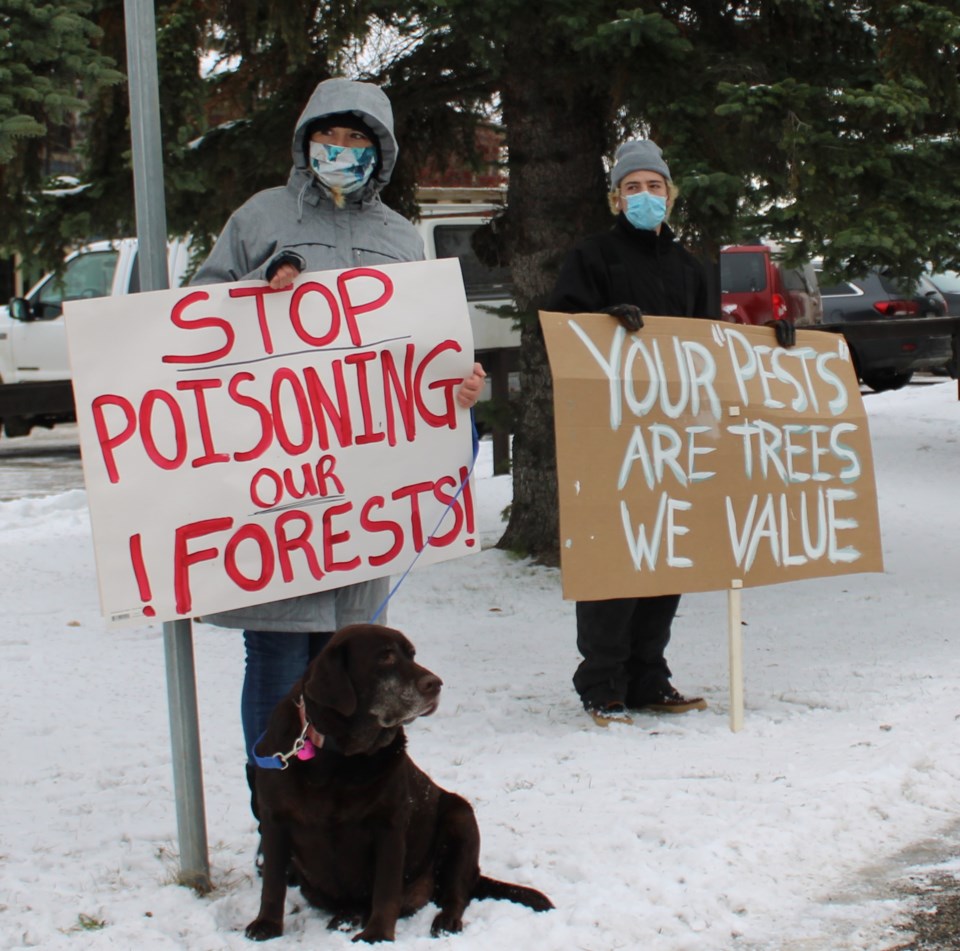A rally against the use of a controversial herbicide on local forests drew about 50 people to the doorstep of the Ministry of Forests office in Prince George on Thursday.
Many carried signs expressing their opposition to spraying glyphosate and calling for alternatives to the chemical used in stands of young spruce, pine and fir to prevent growth of competing broadleaf species, notably aspen and birch.
The rally's main organizer, James Steidle of Stop the Spray, said forest diversity is being put a risk and is being done in support of an industry that is employing fewer and fewer people as sawmills become more automated.
"If you listen to the vast majority of forest scientists, they're saying we need to diversify our forests immediately," he said. "We need as many species on the landscape as we can possibly get."
Broadleaf trees can act as natural fire breaks in the event of a wildfire, he added.
The event was held as a public comment period for Canfor's proposed renewal of a five-year pest management plan ended earlier this week. Steidle said it will give Canfor the authority to spray an area stretching from Summit Lake to Ancient Forest-Chun T'oh Whudujut Provincial Park to Hixon.
He said the government reimburses Canfor for the cost of aerial spraying, leaving the taxpayer on the hook to the tune of about $10 million over five years.
Speakers included Prince George-Mackenzie MLA Mike Morris. A past president of the B.C. Trappers Association and an owner of a registered trapline since the early 1980s, he is working to win support from his B.C. Liberal colleagues for a private members bill against the practice.
Morris said he has noticed a cumulative effect from glyphosate spraying over the decades he has been out in the wilderness on the food sources wildlife rely on.
"It kills the seeds, it kills the berries, it kills the grasses, the same thing that sustains insects, squirrel animals, the birds that we have that play a part in the food chain...our animal populations have crashed in this province and we need to do everything we can to turn that around here." Morris said.
"Glyphosate is just the beginning and I think we need to have to do a complete reset of how we look at forestry and move perhaps from a volume-based industry to a more ecologically-based industry in the future."
Rally participant Gerd Erasmus said spraying "destroys the economy" for guide outfitters, berry pickers and mushroom pickers, the latter of which "has far more money involved than most people realize."
Silviculture contractor Dennis Loxton said he has saved the provincial government "millions of dollars" by using sheep to weed out stands of coniferous trees.
A Canfor spokesperson has said the company is significantly reducing its use of herbicide by increasing use of manual brushing and other practices.
Steidle welcomed the move but maintained it has been limited in scope.
"We're not going to rely on a company's word here," he said. "We need the government to make the regulations and listen to the people."



